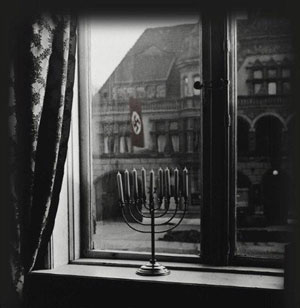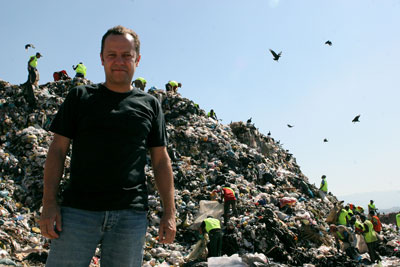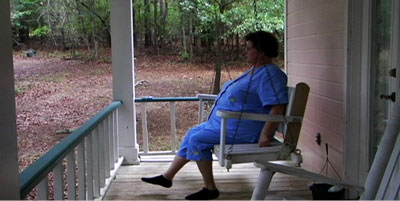In 1969, when Fred Sondermann was presented with the opportunity to return to his native Germany, thirty years after he and his parents narrowly escaped to the United States just days before the outbreak of WWII, he said yes. Dr. Sondermann, a Jew and a political science professor at Colorado College, traveled with his wife and three children to Germany for four months. And though the trip’s purpose was ostensibly professional, Sondermann found that he was affected most deeply by the return to his childhood hometown, Horn. This first-person narrative, adapted from Sondermann’s memoirs of the trip, walks the viewer through the experience, contemplating victimization, the nature of blame, the appropriate issuance of forgiveness, and the determination to move forward unburdened by ghosts of the past.
Summary info for schedule – will be hidden on film page

Return
Filmmaker(s)
Running Time
Return
Filmmaker Notes:
I have never met Fred Sondermann, the subject of my documentary, Return. He died of cancer at the age of 54 in 1978. I was a college student in Kansas at the time. Dr. Sondermann’s story came to my attention through his son, Gary, who is a friend, and whose son, Dylan has been a classmate of my son, Josh since kindergarten (they are now 11th graders).
One day, while watching the boys play soccer, Gary and I were discussing a Holocaust class that I was taking. Gary said to me, “My dad wrote an article for the Colorado College Magazine about his experience going back to Germany in the 1960’s. He was 15 when he and his parents left there in 1939. Would you like to read it?”
Of course, I was interested. And while reading his story, I was fascinated not only by the experience, but also by the attitude with which Dr. Sondermann approached the encounter with his past. That his return occurred in 1969 is, in itself extraordinary, as the German outreach to Jews who had emigrated before the war did not begin until the 1980’s. But what really makes the story uniquely compelling is the fact that this former German Jew was willing to stand outside his own personal experiences. Dr. Sondermann’s attempt to observe the events of his past through the lens of those who experienced the events differently, while never forgetting or minimizing the experience of the Jewish people during the Holocaust, is both difficult and courageous.
Gregg Easterbrook, a former student of Dr. Sondermann, wrote these words about his professor to Marion Sondermann after her husband’s death: “The great thing Fred offered, I will always believe, was a faith in the strength and durability of human kindness. He had been swept up in, soaked with the most oily black evil our world has let erupt. You could smell it on him without mistaking, as the stain permeated any from his era who were exposed. Yet he was among the few who reacted with kindness, using the horror in his soul as a raw material from which to manufacture, through some miraculous engines of determination, a product of love. Knowing that he could do that gave me a faith in the tissue of human charity and tolerance. Even badly cut, it could renew. That testimony is beyond value…”
For those, like Gregg Easterbrook, who were fortunate enough to have known Fred Sondermann, Return is a tribute to a man of kindness, decency, and compassion. For those of us who will live our lives having never known Dr. Sondermann, it is an opportunity to journey with him, as he contemplates profound ideas about forgiveness, guilt, hope, loss and the way our actions define who we are. His is truly a testimony beyond value.
Cyd Chartier Cohn, May, 2010


